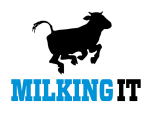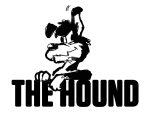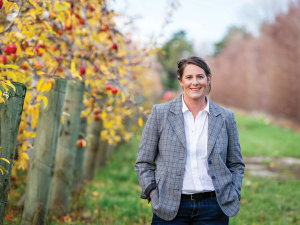The dairy farmer organiser of a Northland protest at the Government’s “attack on rural communities” hopes such events go nationwide and across the agri sector.
“They are throwing middle New Zealand under a bus,” said Mark Cameron who organised the Ruawai protest attended by about 100 people, some on tractors and even a helicopter.
The two major legislative issues which could “undo rural NZ” are the Zero Carbon Bill and water.
“We all came to the same consensus -- that this stuff was being expedited through Parliament pretty quickly,” Cameron told Dairy News, commenting on the protest.
“The stuff going through Parliament will have pretty dire effects on NZ as a whole.”
All the sectors -- dairy, beef and growers -- need to be concerned, he says.
“If we fracture things off to just, say, dairy or beef, then start aligning one against the other [we won’t] really achieve anything.”
The Zero Carbon Bill will have massive effect, he says. The Paris Accord excluded food production, he claims.
“The global population is growing and the demand for food is always growing.
“Especially here in NZ we produce 18% of the country’s GDP, but economically we are being thrown under a bus on what appears to be nothing more than subsidising of carbon credits for China which is increasing its coal production.”
He says the Government is also pushing through the water legislation “with no real understanding of the fiscal or emotional destruction to rural NZ.”
A lot of money will be tied up in monitoring and auditing alone, Cameron says. He has heard a figure of $300-$400 million annually but some MPs have told him that is a conservative figure.
“There are too many unanswered questions for the eight weeks they have given us for submissions,” he said. “We cannot really in the greater community analyse where it will leave us.”
Cameron sees it as a feel good policy with few practical solutions.
He wanted to test the mood of the community with the protest and said “they were right behind us”.
“We are hoping the impetus grows. We are trying to get it out there that we need to have the many people affected by this all on the same page [in order] to win anything in Parliament.”
He says dairy and beef must ensure they don’t end up fighting each other. If they are united they will have some sway.
“But if we are constantly splitting hairs about who is the better farmer… we will not achieve anything.”
It is a rural issue but also has massive flow-on effects, whether on consumer prices or vets or the small businesses which support farming.
Morale low, says MP
Northland National MP Matt King says he has never seen farmer morale so low.
“Depressed, under pressure, made to feel ashamed of their profession -- you name it,” he told Dairy News.
One farming consultant told him she deals daily with clients who are depressed and unhappy over what is happening and the portrayal of farmers by the media.
“Some people are saying it is like never before, like an unprecedented attack on rural NZ,” King said.
One older farmer told him it was worse than when farm subsidies were scrapped in the 1980s.
“The Paris Agreement has a clause that exempts food production. No other country is even talking about putting agriculture into their emissions trading schemes,” he said.
“We are the only one. That will put us at a massive disadvantage if none of our trading partners are doing the same.
“In fact many of our trading partners subsidise their farming industry, but we don’t. Not only will we be taxed an additional tax. We also will be competing against others who are subsidised.”

















